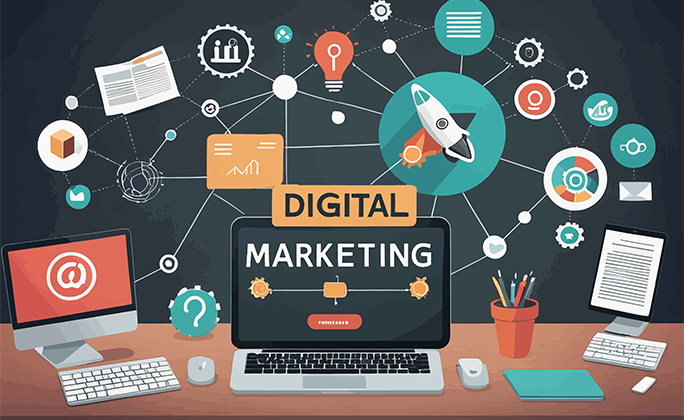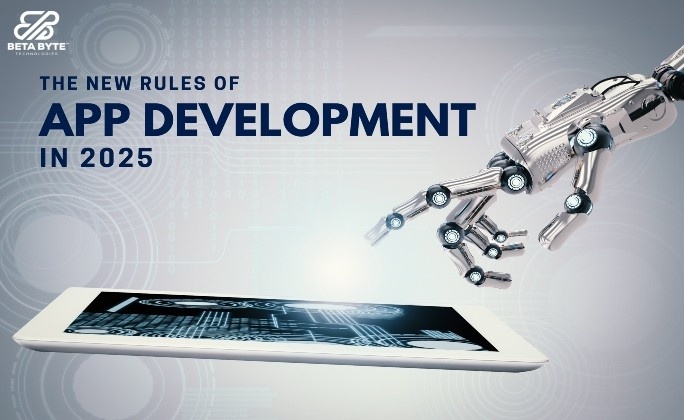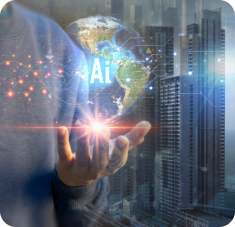Digital Marketing
Exploring the Digital Marketing Landscape: Present and Future
 Published on
April 15, 2024
Published on
April 15, 2024

In today's fast-paced digital world, the realm of marketing is continually evolving, presenting both challenges and opportunities for businesses striving to stay ahead of the curve. As we delve into the intricacies of digital marketing services, it's imperative to not only understand the current landscape but also anticipate the trends shaping tomorrow's strategies.
1. Today's Digital Marketing Landscape:
In the present scenario, digital marketing encompasses a myriad of channels and techniques, including search engine optimization (SEO), social media marketing (SMM), content marketing, email marketing, pay-per-click (PPC) advertising, and more. Each channel offers unique opportunities for businesses to engage with their target audience, build brand awareness, and drive conversions.
However, the key to success lies in crafting an integrated approach that leverages the strengths of each channel while maintaining consistency across all touchpoints. Data-driven insights play a crucial role in optimizing campaigns, refining targeting strategies, and maximizing ROI.
2. Emerging Trends Shaping Tomorrow's Strategies:
Looking ahead, several trends are poised to reshape the digital marketing landscape and redefine how businesses connect with consumers:
AI and Machine Learning: As AI technologies continue to advance, marketers can harness the power of machine learning algorithms to personalize content, automate processes, and deliver more relevant experiences to users.
Voice Search Optimization: With the proliferation of voice-enabled devices, optimizing content for voice search is becoming increasingly important. Marketers must adapt their SEO strategies to accommodate conversational queries and capitalize on this growing trend.
Video Marketing Dominance: Video content is rapidly gaining traction as the preferred medium for consuming information online. From short-form videos on social media platforms to long-form content on YouTube, businesses need to invest in compelling video marketing strategies to capture and retain audience attention.
Augmented Reality (AR) and Virtual Reality (VR): AR and VR technologies offer immersive experiences that have the potential to revolutionize digital marketing. From interactive product demonstrations to virtual storefronts, businesses can leverage these technologies to create memorable brand interactions and drive engagement.
3. The Importance of Adaptability and Innovation:
In an ever-changing digital landscape, adaptability and innovation are paramount. Successful digital marketers must continually experiment with new technologies, strategies, and platforms to stay ahead of the curve. By embracing a culture of innovation and remaining agile in their approach, businesses can position themselves for sustained growth and success in the dynamic world of digital marketing.
Conclusion:
As we navigate the complexities of digital marketing today and tomorrow, one thing remains clear: the landscape will continue to evolve at a rapid pace. By staying informed, embracing emerging trends, and fostering a culture of innovation, businesses can seize the opportunities that lie ahead and drive meaningful results in an increasingly digital world.













